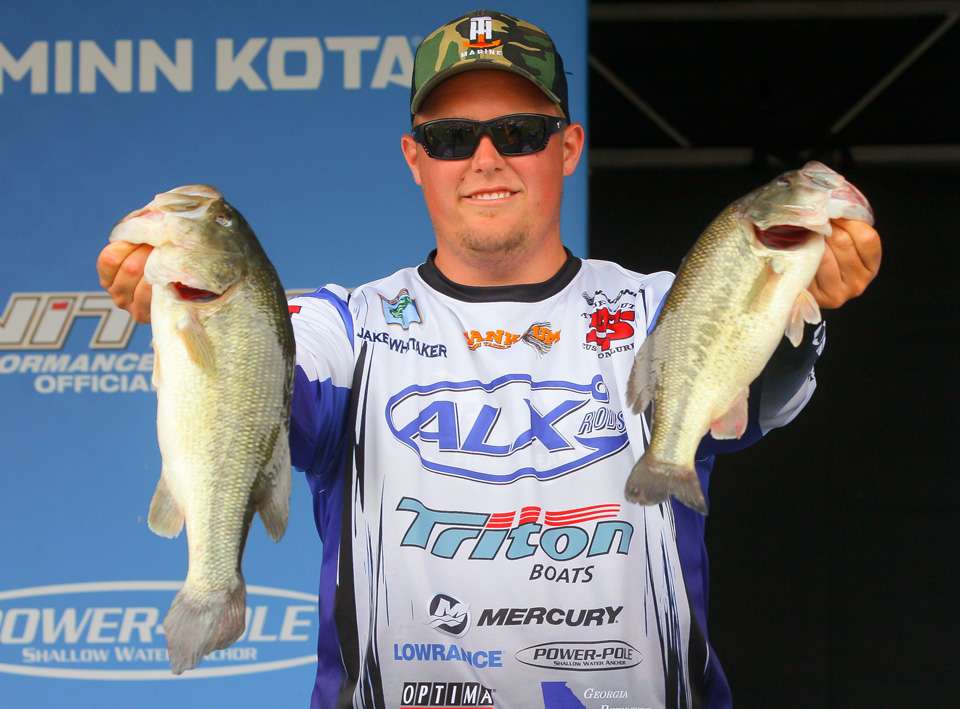
It seems that many bass fans believe every Bassmaster Elite Series pro has it made because “all you guys have to do is fish.”
The reality is that more than half of us on the Elite tour do some type of work between tournaments to maintain financial stability. I’m one of those guys.
For the past 18 months or so I’ve been employed by ISM Machine and Fabrication in Ashville, N.C. The job allows me to make good use of the Civil Engineering degree I earned from the University of North Carolina at Charlotte in 2015.
I do CADD work, which means I make computerized drawings of sheet metal parts we produce at ISM, which is mostly large industrial stuff. Right now we’re making big grates, called trash racks, which prevent logs and other debris from being sucked into hydroelectric dams.
I’m blessed because the guys I work for understand my situation. They knew when they hired me that I fish the Elite Series. They’re OK with me taking time away to fish the tournaments. I don’t get paid when I’m gone, but that’s fine with me. They’re actually one of my sponsors.
I find that working between tournaments prevents my brain from spinning out over how I did in the last event or what I need to do in the next one. I still think about fishing, but not to the point of obsession. That helps me go to the next tournament with clear mind.
We work four 10-hour days a week at ISM. That means I get Fridays off, which allows me to fish a little more when I’m not at a tournament. On the weekend prior to an Elite event, I’ll try to fish a body of water that will help me tune into what I need to be doing.
Before the Lake Hartwell tournament last March I fished Lake Keowee, which is just to the north of Hartwell in South Carolina. Because a warm water discharge flows into Keowee, it’s usually a week or two ahead of Hartwell. The bass at Keowee were already on the beds, so I figured they would be just coming up and beginning to spawn when I got to Hartwell. That’s exactly how it played out.
The next Elite tournament is at Guntersville. To get ready for that one, I’ll be visiting lakes close to home on the weekends that offer some sort of offshore fishing. That way I can get honed in on seeing bass with my electronics.
Having Friday off is also a huge help because I can spend that day preparing my tackle, boat and other gear just before leaving home for an Elite tournament. I usually head out on Saturday or Sunday, and I’m ready to tackle the water Monday when practice officially begins.
Prior to qualifying for the Elite Series I worked with a family friend doing landscaping. I did mowing, weed eating, mulching and whatever they asked me to do. The days were long and hot, and we sometimes worked through the weekend. I took the job because my boss let me have time off to fish the Bassmaster Northern Opens. I could have used my engineering degree to get a higher paying job, but it would not have afforded the time I needed to fish the Opens.
I chose the Northern Opens because it suited my style of fishing better than the Central or Southern Opens. I didn’t have the time or money to fish more than one division. In my second year of fishing the Northern Opens, I qualified for the Elite Series. The Bassmaster Opens are the perfect avenue for a working guy to become a professional bass angler.
The point of all this is that you don’t have to be born with a silver spoon or have full financial backing from sponsors to qualify for the Elites and even to compete in these premier tournaments. Some guys do have substantial sponsor support, and that’s fine. It’s what we all work for.
If you’re serious about becoming an Elite pro you can make it while maintaining a regular job. You’ll have to make sacrifices. But if you want it badly enough you’ll do whatever it takes to get there. That’s basically where I’m at right now.

